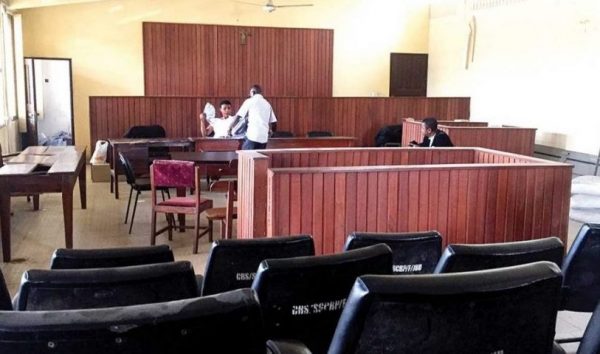The Federal High Court in the Osogbo Judicial Division has recently dismissed the case filed by the Non-Academic Staff Union of Universities (NASU) against the Economic and Financial Crimes Commission and the Vice-Chancellor of Osun State University, Professor Labode Popoola.
In the suit Number FHC/OS/CS/44/2020 filed by the Non-Academic Staff Union of Universities and Associated Institution (NASU), the union prayed the court to compel the EFCC to investigate and prosecute the VC of the institution, Professor Labode Popoola over mismanaged funds belonging to the university among other corrupt practices as contained in its petition to the commission.
In the argument of NASU’s counsel, Kanmi Ajibola, he referred the Court to the duties of the EFCC as captured under Sections 6 (m) and 46 of the EFCC act and urged the Court to grant the NASU’s prayers.
However, EFCC’s counsel, M.S Usman filed a 17-paragraph counter affidavit, 12 exhibits and a written address where a lone issue was submitted for the Court determination as follows: “Whether the Court having regard to the circumstances of this case can grant the reliefs sought by the applicant.”

Usman further argued that mandamus does not provide for a repetition of an act which has already been done by a public agency and therefore urged the Court not to grant the NASU’s prayers as they lack the moral and legal standing to seek for the order of mandamus.
The petition of NASU which was supported with documents to EFCC against the Vice-Chancellor of Osun State University is that EFCC failed in its duty to investigate and prosecute the Vice-Chancellor, Professor Labode Popoola. But EFCC posited that it has done all which is expected of it by Law and that the petition written against the VC, Professor Labode Popoola has been investigated. The matter was thereafter laid to rest having found that the VC did not misappropriate the university’s fund which would have made the commission to prosecute him. The Commission stated further that, being an agent of the Federal Republic of Nigeria, the commission will not allow itself to be used as an instrument of witch-hunt, oppression, persecution or torment any other citizen of the country.
The Judge of the Federal High Court in the Osogbo Judicial division, Honourable Justice P.O. Lifu in his ruling, citing the case of EFCC Vs. Yanaty Petrol Chemical Ltd. 2017, 3 NWLR Pt. 1555, 171 at 190, Para C-E, where the Court of Appeal held as follows:
“The Economic and Financial Crime Commission, just as any other investigation agency, has a wide discretion in respect of investigation of alleged economic and financial crimes. This discretion includes how to investigate, closing an investigation, re-opening an investigation which has been closed or carrying out further investigation. The Court hardly interferes with its exercise of the discretion.”
The Court thereafter ruled that: “based on the above reasoning and conclusion in this ruling, the applicant’s prayer is hereby refused and is accordingly dismissed as lacking merit.”

